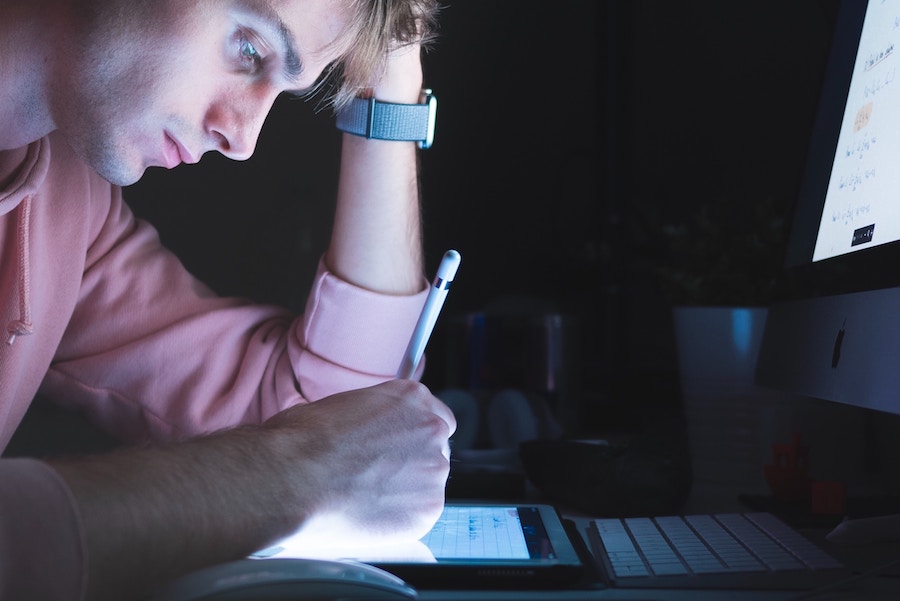
20 Apr How Lights Affect the Quality of Your Sleep
Did you realize that you will spend about a third of your life asleep? Yet often we don’t give the same attention to sleep that we give to other necessities, like food and water. This is probably why more than 70 million Americans suffer from dysfunctional sleep or a sleep disorder. If you’re not getting the seven to nine recommended hours of sleep per night, chances are you feel tired or irritable much of the day. Not getting enough sleep, also known as sleep deprivation, puts you at risk for my health problems, including high blood pressure, exhaustion, mood swings, memory loss, and weight gain. Suddenly driving your car becomes an incredibly risky act. Maybe you find that your family and friend relationships are also suffering. In short, there is no aspect of your life that sleep doesn’t touch. And the worse you fall into what is known as “sleep debt,” the more these problems become exaggerated. Here are some additional symptoms of sleep deprivation you might notice:
- Frequent yawning
- Dozing off in front of the TV
- Difficulty concentrating
- Morning grogginess
- Sudden changes in mood
Tip: Increase Bright Light Exposure During The Day
Your body has a natural time-keeping clock known as your circadian rhythm. It affects your brain, body, and hormones, helping you stay awake and telling your body when it’s time to sleep. Natural sunlight or bright light during the day helps keep your circadian rhythm healthy. This improves daytime energy, as well as nighttime sleep quality and duration. In people with insomnia, daytime bright light exposure improved sleep quality and duration. It also reduced the time it took to fall asleep by 83%. A similar study in older adults found that two hours of bright light exposure during the day increased the amount of sleep by two hours and sleep efficiency by 80%. While most research is in people with severe sleep issues, daily light exposure will most likely help you even if you experience average sleep. Try getting daily sunlight exposure or — if this is not practical — invest in an artificial bright-light device or bulbs.
Tip: Reduce Blue Light Exposure in the Evening
Exposure to light during the day is beneficial, but nighttime light exposure has the opposite effect. Again, this is due to its impact on your circadian rhythm, tricking your brain into thinking it is still daytime. This reduces hormones like melatonin, which helps you relax and get deep sleep. Blue light — which electronic devices like smartphones and computers emit in large amounts — is the worst in this regard. There are several popular methods you can use to reduce nighttime blue light exposure. These include:
- Wear glasses that block blue light
- Download an app to block blue light on your laptop or smartphone.
- Stop watching TV and turn off any bright lights at least two hours before heading to bed.
OVER TO YOU: How does light affect your sleep routine? Have you noticed a change in your habits? Send us your suggestions and thoughts to [email protected].
